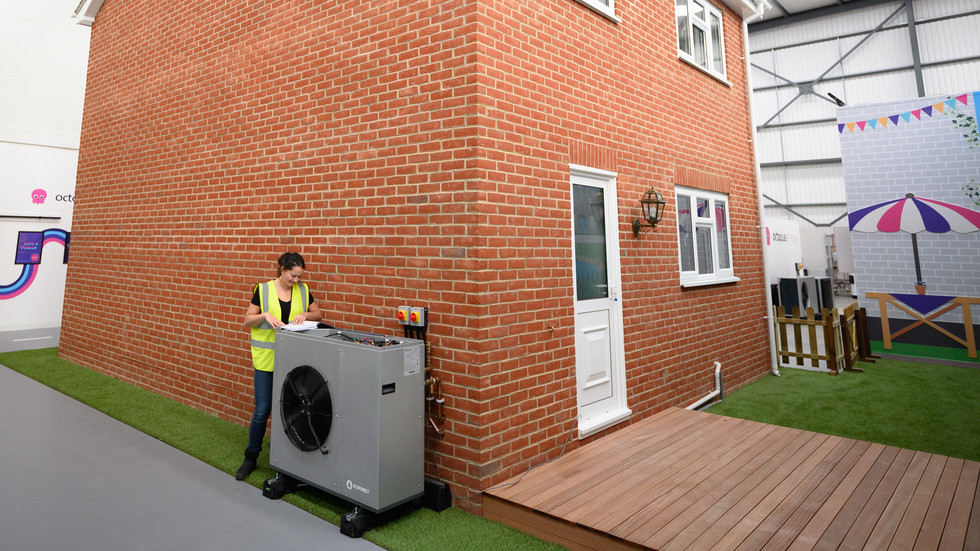
A UK climate policy NGO made the controversial suggestion in its latest “carbon budget” report

© Getty Images / Leon Neal
British NGO the Climate Change Committee has urged people to turn their heaters off at night and during other peak times in its latest “carbon budget” report, the UK Telegraph revealed on Saturday.
Rather than keeping radiators on at night during the coldest part of the year, Britons should “pre-heat” their homes in the afternoon to save money, the report advised, explaining, “Where homes are sufficiently well insulated, it is possible to pre-heat ahead of peak times, enabling access to cheaper tariffs which reflect the reduced costs associated with running networks and producing power during off-peak times.”
The advice is geared toward households with electrically-powered systems like the heat pumps popular elsewhere in Europe, though most British homes use gas boilers. By 2033, all new-construction homes and up to half of those built after 1952 should include pre-heating capabilities, the CCC said.

Read more
However, the government is reportedly considering scrapping a proposed ban on the installation of oil-powered boilers that would have taken effect in 2026 and forced new homes to use electric heat pumps after warnings the move would further strain the already-overtaxed electric grid and increase rural fuel poverty.
Similar complaints met the CCC’s latest report. “The grid is already creaking, and daft ideas like this show just how much worse it will become,” Andrew Montford of climate policy watchdog Net Zero Watch told the Telegraph, suggesting the UK’s electrical infrastructure couldn’t handle the demand of millions of electric heat pumps working in unison.
“This latest advice to freeze ourselves on cold evenings merely shows the truth that the dream of plentiful and cheap renewable energy is a sham,” Conservative MP Craig Mackinlay agreed.
The latest report from the CCC reportedly details how the UK must reduce emissions between 2033 and 2037. The controversial advice on heaters is included in a section on “behavior change.” The climate NGO was created by the government in 2008 to advise the country on how to achieve its emissions targets, and its carbon budgets are legally binding.
CCC director Chris Stark revealed last month that even he had not adopted the heat pump technology so forcefully recommended by his group’s carbon budget reports, admitting that they are too expensive for many people and “very difficult” to install in apartments already fitted with gas boilers in testimony before the Commons environmental audit committee.
The most recent carbon budget available on the CCC’s website, dated 2020, acknowledges that “over half the emissions reductions in our scenarios requires [sic] some level of behavior change.” That report advises the government to use lessons learned from the Covid-19 pandemic to nudge Britons into embracing Net Zero by presenting desired changes as the “new normal.”




